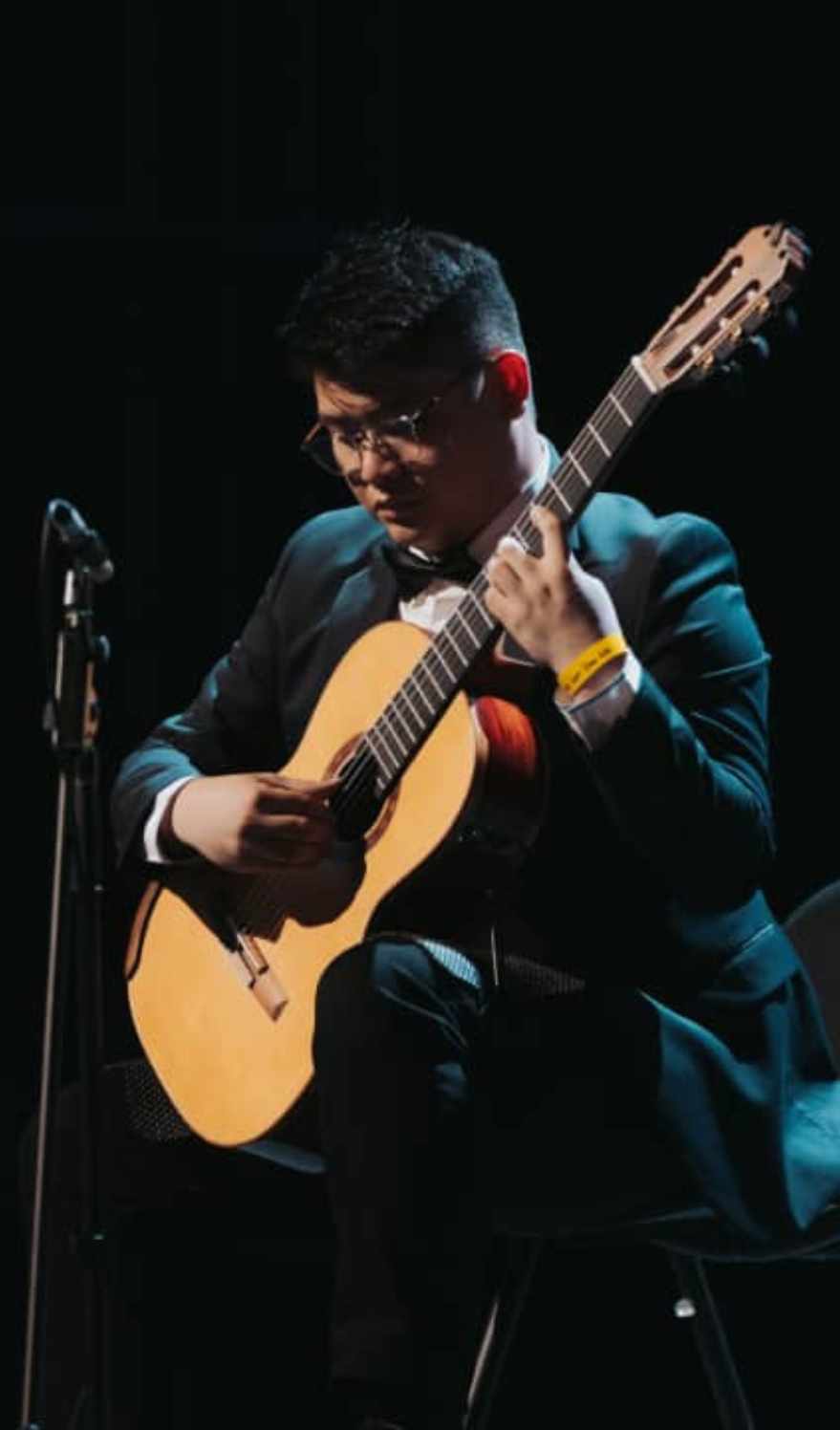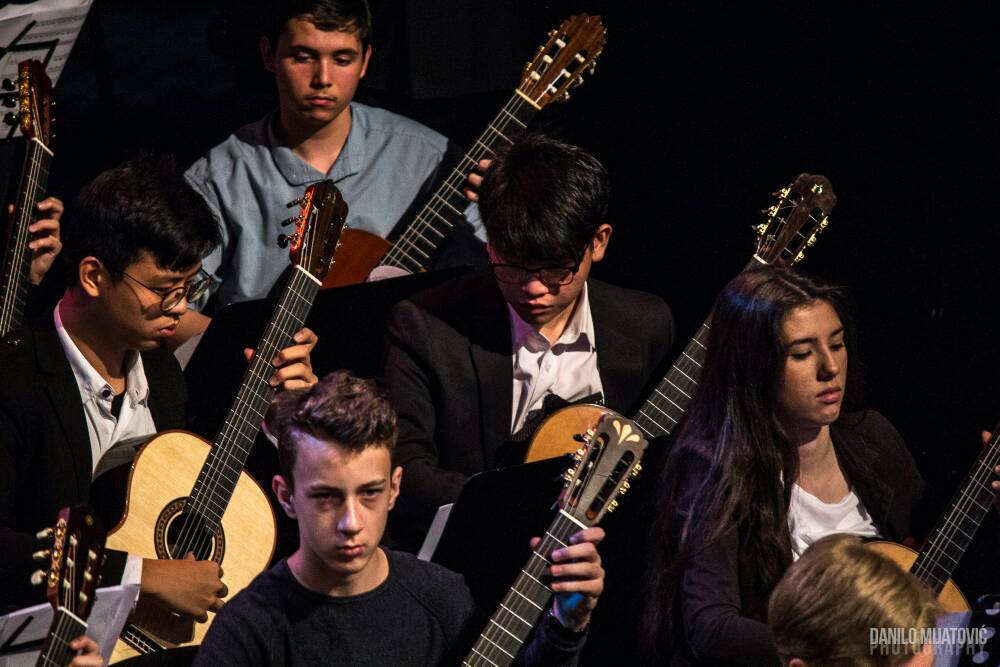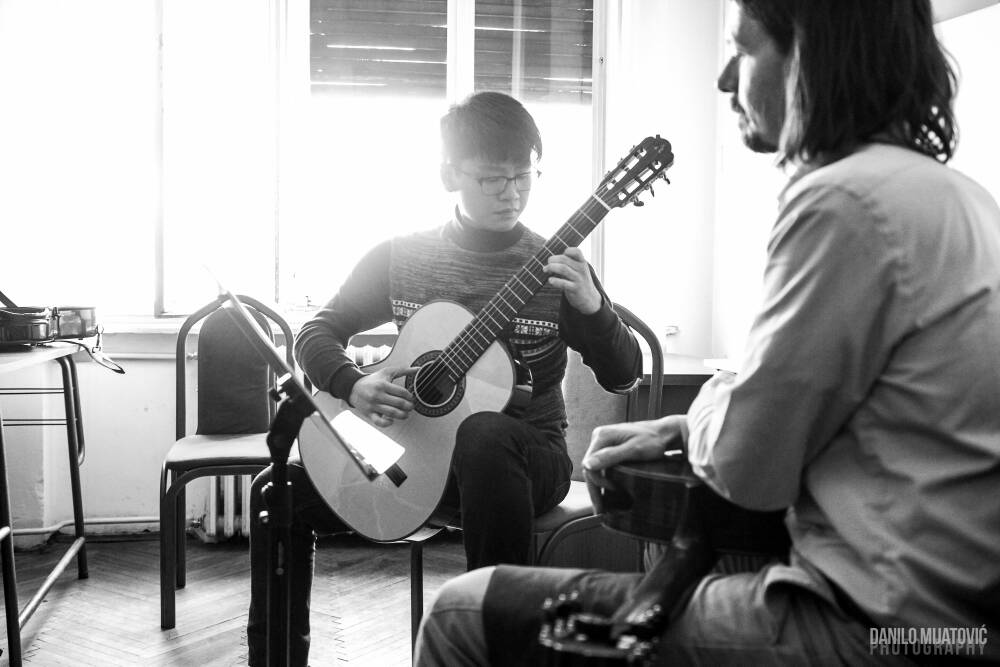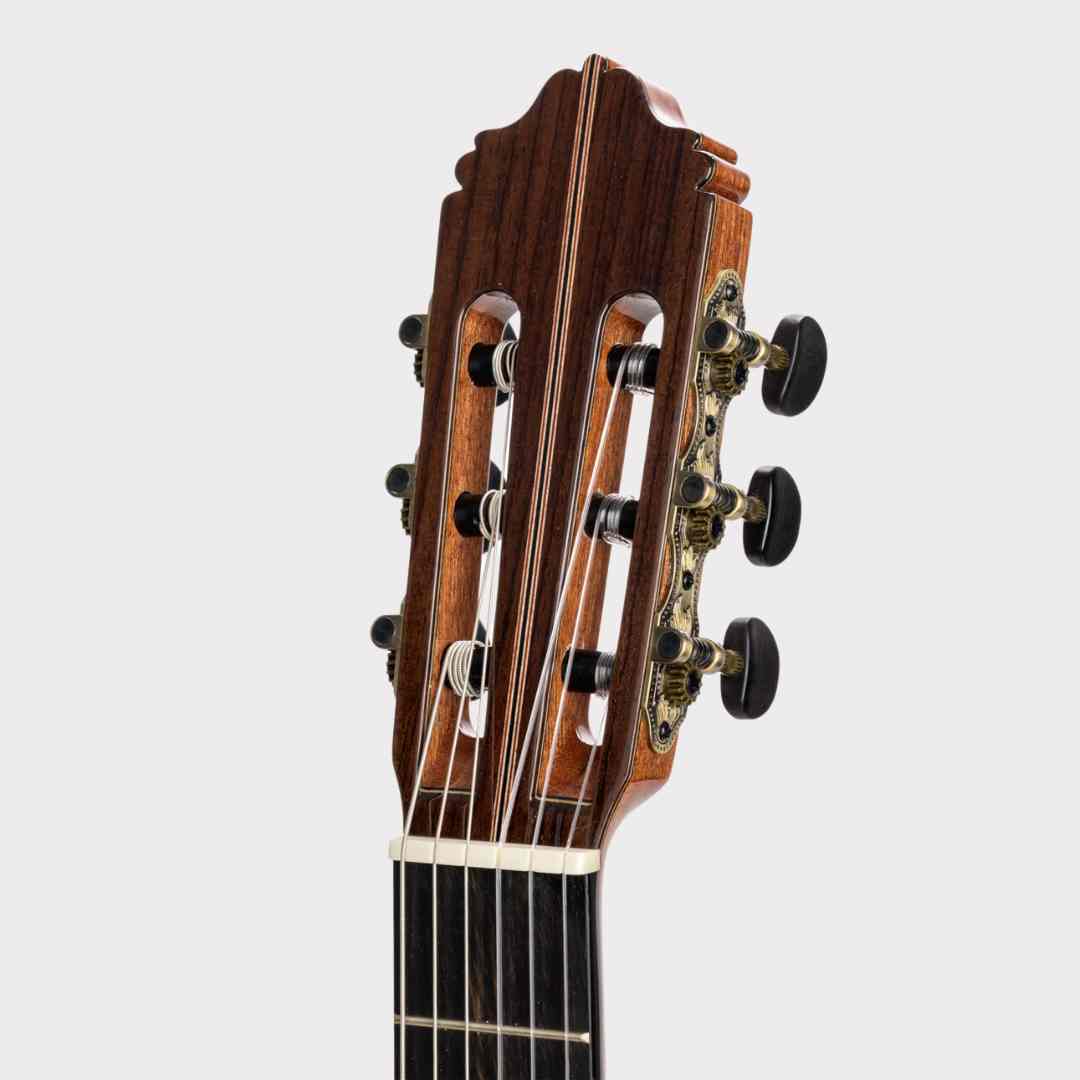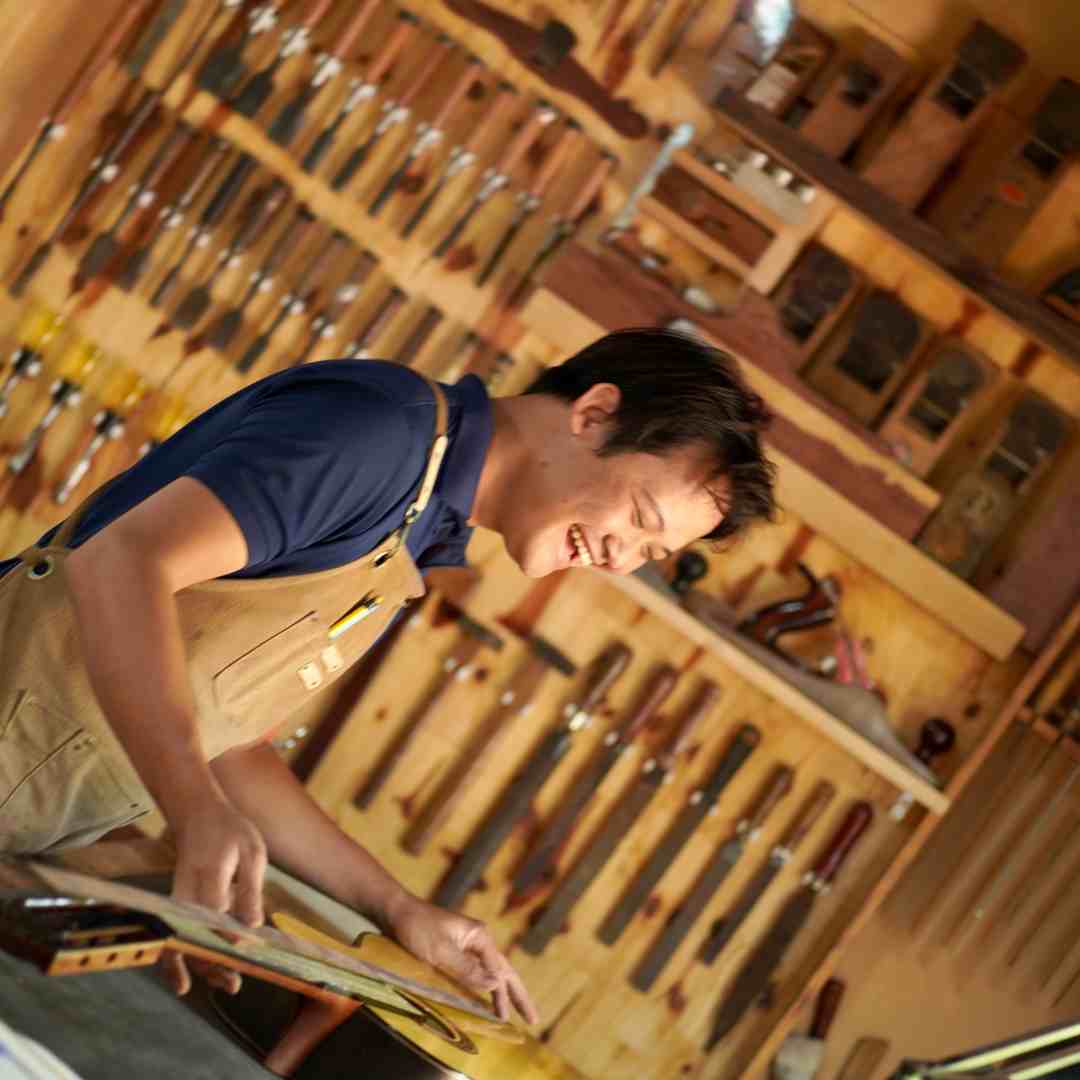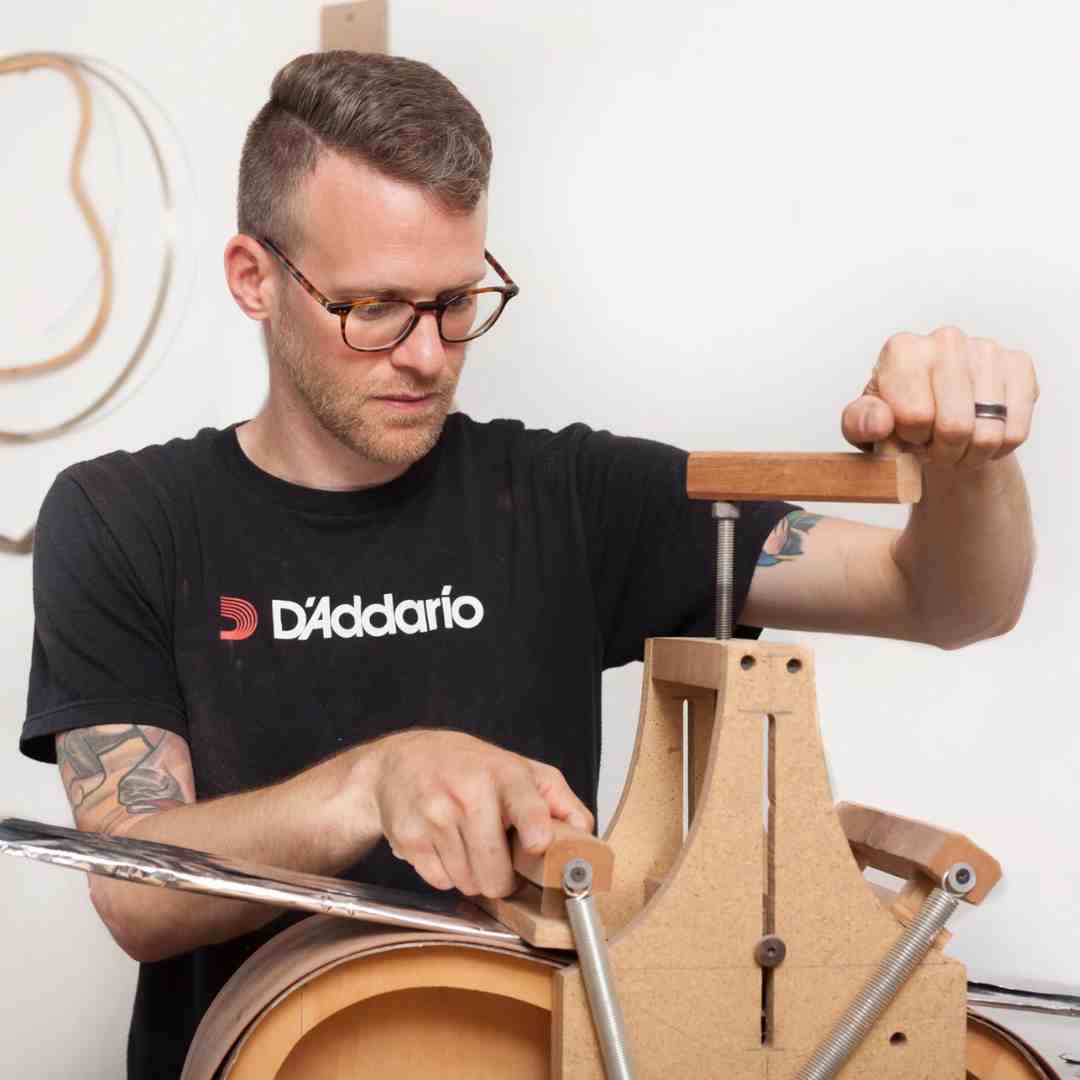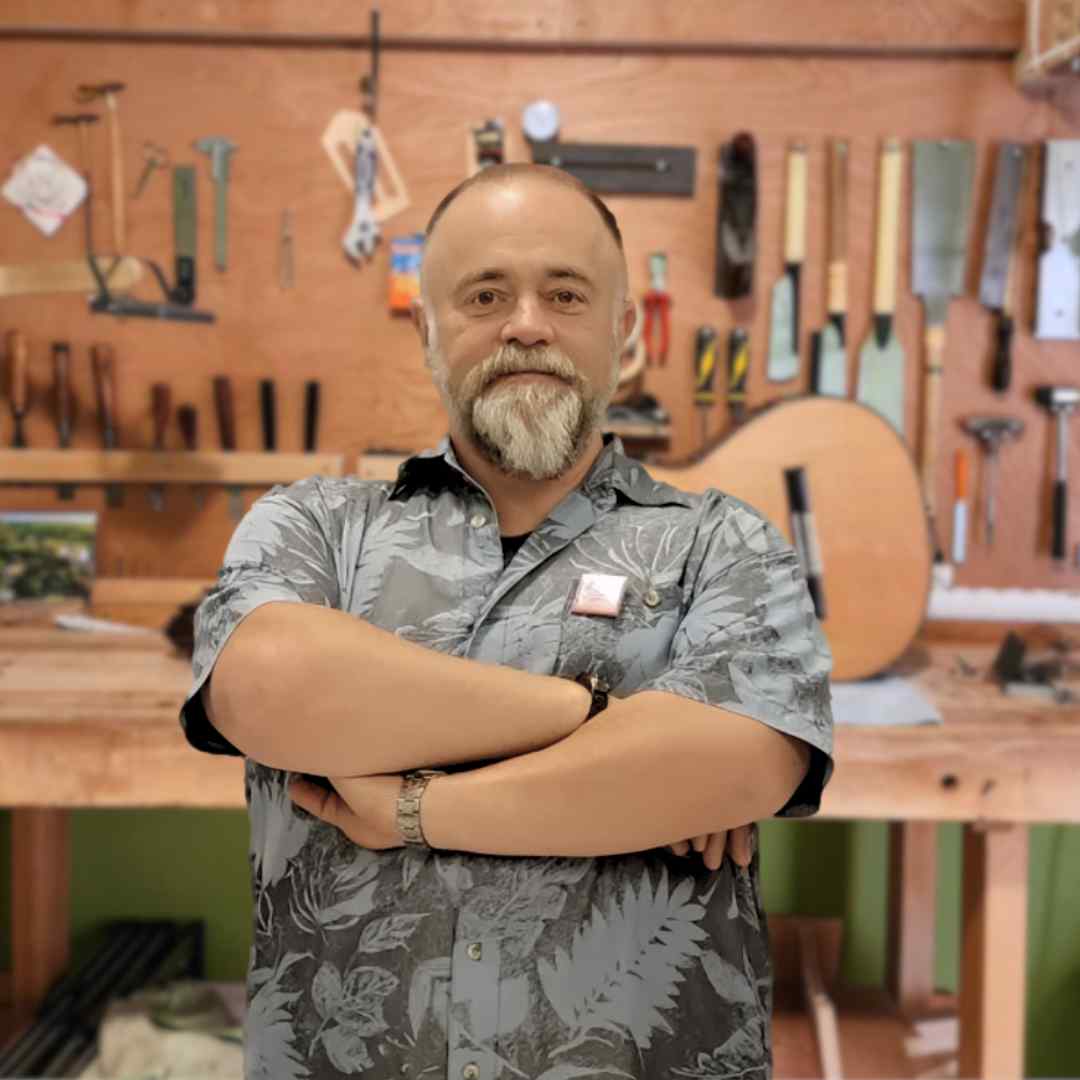Competitions often foster a sense of discipline and dedication among musicians as they strive to reach their full potential. Additionally, winning or even just participating in competitions can boost confidence and open doors to further opportunities. As a child, he wanted to play the electric guitar, but a wise music instructor set him on the right path – to learn the classical guitar. Shortly after that, he went to a concert by Vietnamese virtuoso Thu Le, and that made him fall in love with the classical guitar.
Meet the top guitarist at the Malaysia Guitar Festival 2023 Lim Dao Wei, or Desmond, as he is known to his former college mates. Desmond, who won first prize in the Classical Open category, very nearly did not take part because of a crisis in confidence. “I didn’t plan to take part in the competition this year, I don't know when it started, but I lost confidence. I just felt like I couldn’t do it since after the long pandemic,” says Desmond. He is unwilling to discuss what brought about this loss of confidence, but his support network provided the impetus for his eventual participation, which ended up being a “thrilling and rewarding experience”. “I wanted to stay focused on teaching and almost gave up on the idea of taking part in the competition,” says Desmond, 25. “Luckily, I have super supportive family members and friends who always encourage me, motivating me to participate in this competition. They are my strongest support,” he says. The turnaround came before the competition’s deadline. “Two months before the competition, I decided to take part. And not to win – I just wanted to play well, do the best I can, and share my favourite music,” explains Desmond. With that resolve, he went into full workout mode. “I started to practise every day – scales and arpeggio, with metronome, left- and right-hand technical exercise. I put in a lot of hard work to restore and refine my technical skills. Then on the day of the competition, I just let go of everything, enjoyed the stage, enjoyed the music, and did the best I could.” He played Gran Jota by Francisco Tarrega. “I chose it for its lively character, technical challenge and its catchy Spanish melodies. The piece’s versatility and memorable tunes contribute to its enduring appeal,” he explains. “I feel that competitions can play a crucial role in raising the standard and interest in music. They create a platform for musicians to showcase their skills, encourage healthy competition, and inspire others to excel,” says the Malaysian Institute of Art graduate.
“Competitions often foster a sense of discipline and dedication among musicians as they strive to reach their full potential. Additionally, winning or even just participating in competitions can boost confidence and open doors to further opportunities.” That said, it’s also important to remember that music is a form of art and expression, adds Desmond, and its value may not be accurately determined in a competition. “Competing should be seen as a means of personal and professional growth rather than the sole measure of success. “Ultimately, the value of competitions lies in the positive impact they can have on a musician’s development and the broader musical community,” says Desmond, who is sales assistant and instructor at L.Luthier in Petaling Jaya, Malaysia. So what next? An international competition? Not now, says Desmond. Or at least, not yet. “This is a new start for me. I’ll practise hard to make myself a better musician. Perhaps in the future, if my time permits and I’m well prepared, I will give it a try,” says Desmond. That’s a positive impact, and Desmond’s attitude would probably make Thu Le proud of having been his inspiration. Desmond was 12 when he started learning the guitar. Yes, it was the electric guitar that he was hoping to learn. “I remember being attracted to the guitar because of Taiwanese band Mayday’s guitarist, Monster. I told my mom that I wanted to learn the guitar and she took me to Torres Guitar Shop near our home in Muar. They had a music school there and we met the principal, Mr Tan Sen Meng, who told my mother I should learn the classical guitar and get all the basics first. “My first teacher was Mr Seah Xiang Hong. I still remember that I had to walk or cycle to learn guitar every week.” Soon after beginning classes, the good principal told Desmond’s mother that she should take him to a concert by Thu Le to broaden his horizons. “It was the first concert I attended. My family and I went and I was so impressed. From that moment, I was in love with the classical guitar,” says Desmond. Right. Sorry, Mayday. And that love affair with the classical guitar continued, largely because of a community of musicians and music students he grew up with. “Another important factor in my development and interest as a guitarist was the presence of a guitar ensemble,” says Desmond. “It made for a fun and interesting learning environment. The ensemble called, Torres Guitar Ensemble, and was led by my first teacher Mr. Seah. We had practice sessions every Friday night, and it was free admission for Torres Guitar Shop’ students. “Everyone gathered together and played classical ensemble pieces. It was really fun and easy to make friends. We would also have performances inside or outside the school quite often,” says Desmond. The route he has travelled as a guitarist is one he would recommend to any parents who want their child to learn music.
“Learning to play the classical guitar, especially for children, has several benefits. It builds foundational musical skills – the classical guitar provides an excellent foundation for learning music theory, sight-reading and ear training. These skills are transferable to other musical instruments and can contribute to a well-rounded musical education,” says Desmond. There are other positive factors, too. “Affordability and portability are in the classical guitar’s favour, too, compared to some other classical instruments. It’s a practical option for families and individuals who may have space or budget constraints.” But it’s best not to force a child to learn the guitar, says Desmond. “The choice of instrument ultimately depends on individual preferences, interests, and goals. Other instruments may also provide unique benefits, and it's essential to consider factors such as the child's personality, physical characteristics, and musical tastes when recommending an instrument.” With his involvement in both teaching and performing, does he prefer one over the other? “Performing allows me to express myself artistically, showcasing my skills and interpretation of music. It’s a direct form of communication with an audience and can be personally fulfilling. Teaching, meanwhile, provides an opportunity to share knowledge, skills, and passion for music with students and their parents. Teaching is a rewarding way to make a positive impact on students and contribute to the next generation of musicians. “I find myself enjoying both of them a lot.” And here’s a piece of advice he offers: “Practise with a metronome! I used to hate metronomes in the past, and I’ve made a lot of silly mistakes because of that. But now, I find that a metronome helps a lot with my practice. When I incorporated the use of a metronome in my practice session, I found it helped me to avoid some silly mistakes which I didn’t notice in the past. MY PRACTICE ROUTINE “I’ll start with scales and arpeggio with a metronome, from slow tempo and increase the tempo little by little, and also play with crotchet, quaver, semiquaver and triplet rhythm patterns. I’ll play some etudes and studies, too. Lastly, I’ll practise the repertoire that I’m learning. Sometimes, I’ll just listen to music on YouTube while reading the score, it helps me to understand a piece better.” MY FAVOURITE COMPOSERS I’m a big fan of the music of Francisco Tarrega and Joaquin Rodrigo! I love Tarrega’s music for its beautiful melodies, innovative techniques, and expressive character. When people hear of Joaquin Rodrigo, they will definitely think of his iconic compositions, notably, Concierto de Aranjuez. My favourite from him is Invocacion y Danza. I heard it from my teacher, Ms Hong Tee’s concert for the first time many years ago, then I started listening to Rodrigo’s music – his chamber or solo pieces. MY FAVOURITE GUITARIST That would be Marco Tamayo. When I get in touch for a new piece, the first thing I do is try to search for his version on YouTube. I have his CD also, which I play in my car every time I am driving! HIS GUITAR
I’m using L. Luthier Nine SC dt, it’s a spruce double top with cocobolo rosewood back and sides. It has a powerful and very responsive sound. I chose it because it feels very comfortable when I play on this guitar, and it is easy to play! My favourite guitar is from an American luthier, Stephan Connor. The first time I saw this guitar was at the Guitar Art Festival 2017 when I was in the masterclass with Stephen Mattingly, who owned one. The guitar sounded amazing when I sat next to him! The sound is very clear and focused, with a great bass presence balanced by clear, strong trebles – that’s the kind of guitar tone that I admire. My guitar hero, Marco Tamayo, owns a Stephan Connor guitar, too. I listened to Marco’s concert a few months ago and I still love that sound. I have never tried a Connor’s guitar before, but I am already in love with it just listening to it. I will work hard to get one! |
YOU MAY LIKE

